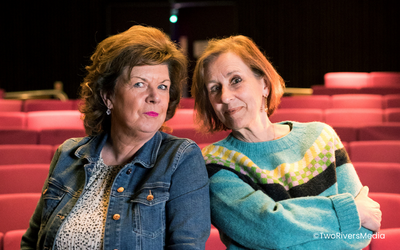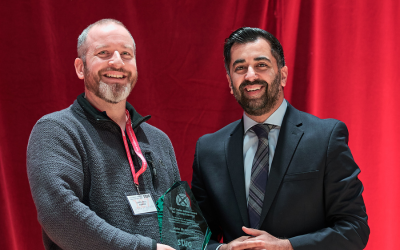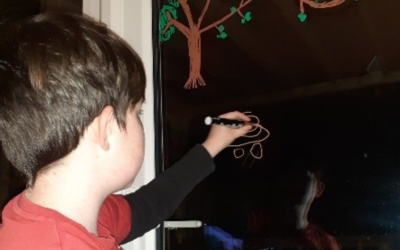Women in politics: successes and barriers
 Author:
Author:
Dr Helen O’Shea is a Lecturer in History in the Faculty of Arts and Social Sciences at The Open University.
Academic adviser on the Open University/BBC Scotland documentary, The Women Who Changed Modern Scotland, Dr Helen O’Shea explains why we need to redefine our understanding of success when it comes to women’s participation in politics and how it impacts everyone.
The Open University/BBC Scotland co-production The Women Who Changed Modern Scotland tells the stories of key women who have had a role in shaping Scotland over the last 50 years, in particular women in the workplace.
 Presented by Kirsty Wark, the series highlights the women who challenged the status quo in the 1960s and 70s, those who defied sexism to seize new opportunities in the 80s and 90s, and the women who, in more recent years, have stepped up to lead – in politics, in their communities and in the workplace.
Presented by Kirsty Wark, the series highlights the women who challenged the status quo in the 1960s and 70s, those who defied sexism to seize new opportunities in the 80s and 90s, and the women who, in more recent years, have stepped up to lead – in politics, in their communities and in the workplace.
In advising on its development, I was able to draw on the OU’s new online social history resource, Women’s Workplace Struggles, a rich collection of first-person stories and articles highlighting workplace issues for women in the context of social, economic, cultural and political change.
Struggle is a theme we kept coming back to in The Women Who Changed Modern Scotland. Over three episodes, Kirsty Wark meets women who developed successful careers in fields previously dominated by men, as well as those who fought to change the systems and structures that were holding women back. But, as the series underscores, this new prominence comes at a cost as women are now encountering new forms of hostility on social media and beyond.
The recent resignation announcement of First Minster Nicola Sturgeon, and her frank contribution to the series, reinforce the serious impact of what she describes as the ‘brutality’ of political life for women today. The wider global backlash against women’s rights, and with this, the increasingly prevalent toxicity toward women online, surely necessitates a reassessment of what success looks like for women in political life and where we go from here.
The passing of the Domestic Abuse Act by the Scottish Parliament in 2018, making coercive control illegal, was the first of its kind globally."
True, there has been much to celebrate. In 1999, Labour was the first party to achieve 50:50 with its election success of 28 women MSPs. In 2003, this increased to 56 per cent.
In 2015, the leaders of the three largest political parties in Scotland were all women, with the SNP first to successfully deliver a woman to the role of First Minister of Scotland.
The passing of the Domestic Abuse Act by the Scottish Parliament in February 2018, making coercive control illegal, was the first of its kind globally, as was the Period Products (Free Provision) (Scotland) Act passed in 2020.
These measures, I believe, have been, in part at least, down to the nature of the Parliament’s political representation, of its symbolic and substantive presence of women as elected members as well as the opportunities for the concerns and interests of women to be heard and taken into account.
There is now the tangible risk of women, quite understandably, being turned off entering politics."
However, there is a real danger of progress now stalling. Sturgeon’s insights in the series strike a cautionary tone at a time when we are seeing hard-won advancements being eroded, at a time when the current environment for women in politics is, as described by her in the series, as ‘much harsher and more hostile’ than at any time in her decades-long career.
Progress, far from being inevitable, needs constant nurturing yet there is now the tangible risk of women, quite understandably, being turned off entering politics. For those who do enter, many feel forced to leave due to the still-prevalent exclusionary cultures that exist and the relentless online gendered abuse. We know, from research from across the world, that diverse representation translates into more effective legislation that, as this series shows, has the ability to change not only our lives but that of our families, communities and Scottish society itself.
If we leave politics to only those who can endure the brutality, we all end up losing.
The second and third episodes of The Women Who Changed Modern Scotland will air at 10pm on BBC Scotland on 28 February and 7 March 2023. The entire three-part series is also available to view on BBC iPlayer.
Visit OU Connect to access supporting content for the series. This includes blogs and two short films focussing on the barriers to and the benefits of women in politics.
Pictured left to right: Actress and OU honorary graduate Elaine C Smith, who features in The Women Who Changed Modern Scotland, with Kirsty Wark, series presenter and OU honorary graduate. ©TwoRiversMedia
News
Media contacts
Media enquiries
OU in Scotland Media Relations:
Call 0131 549 7932
OU UK Press Office:
Call 01908 654316
Out-of-hours:
07901 515 891
Visit our OU UK news site

